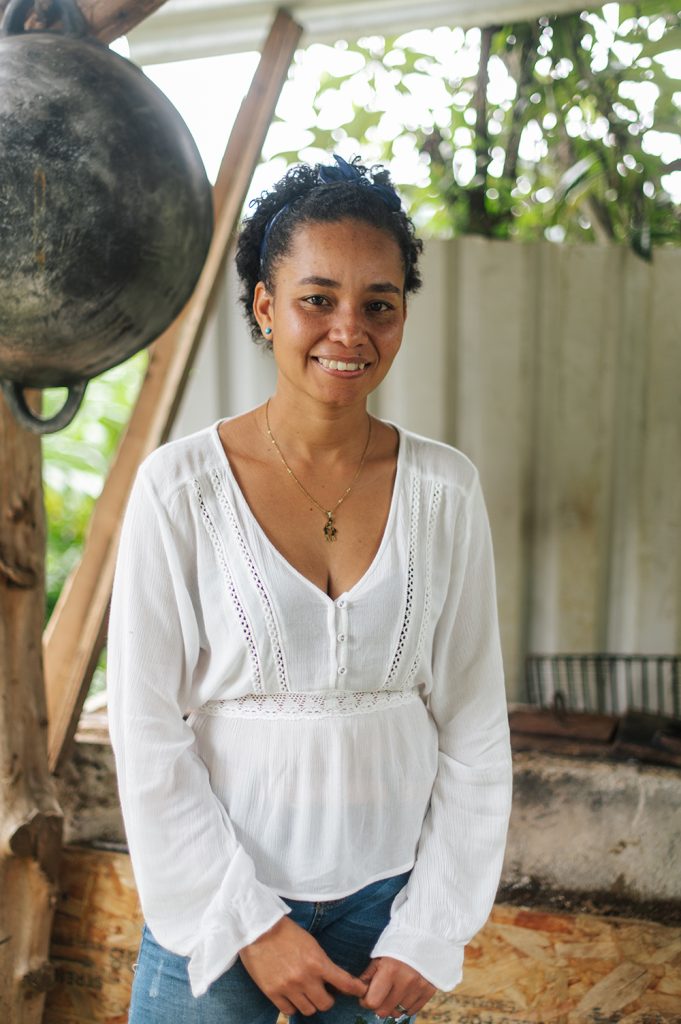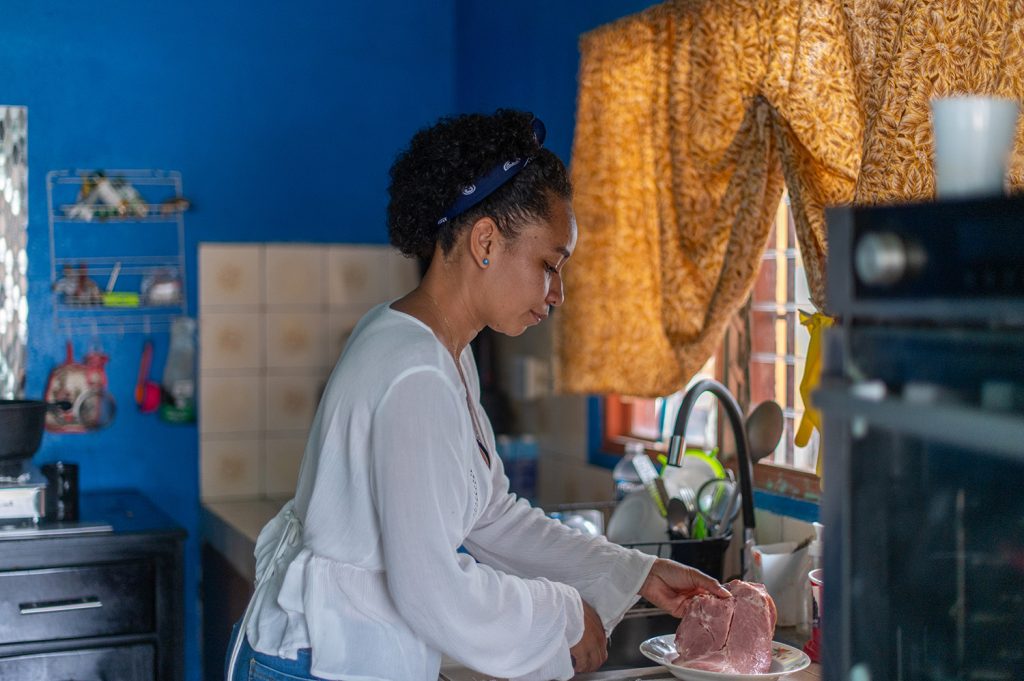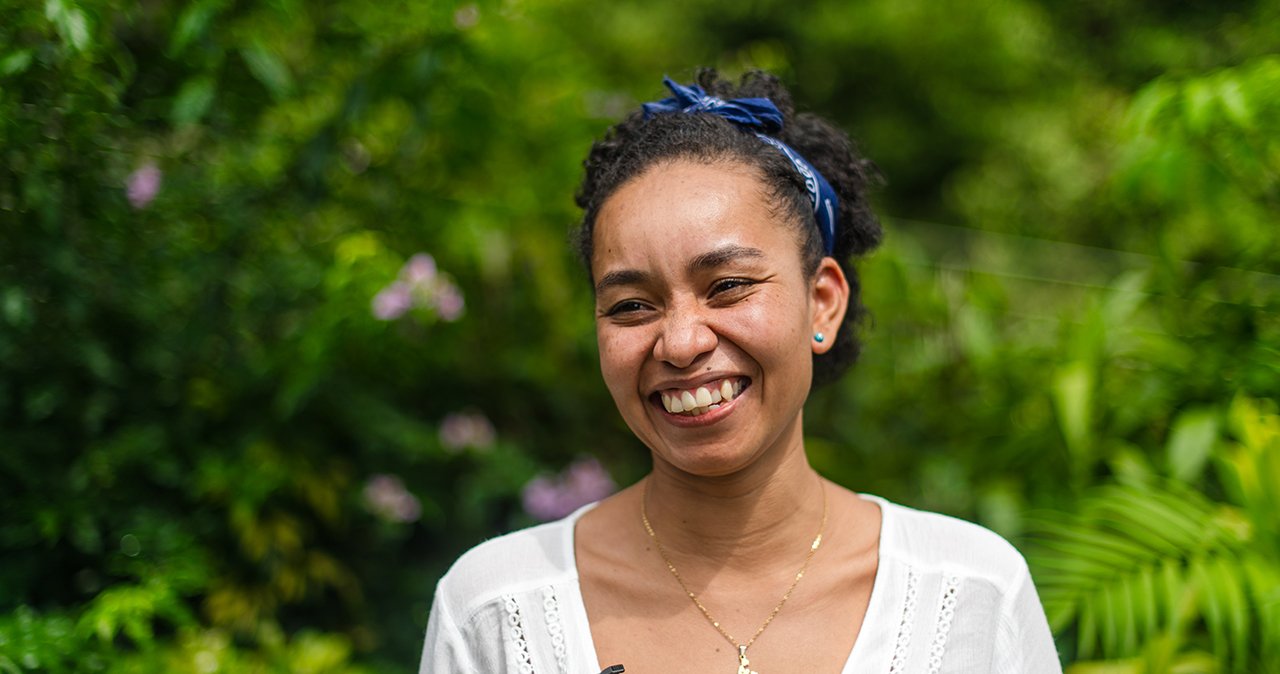When Shamelia Serrú Cabraca ties her hair back, puts on an apron, and starts preparing food, her kitchen fills with the classic smells of the Caribbean. The sweet aroma of coconut milk and the distinctive spicy scent of Panamanian chili fill the air, two key ingredients used in preparing the traditional dishes of Costa Rica’s Limón province. This is where she comes from and proudly represents in her kitchen, and it is the historical and cultural cradle of both the Bribri and the Afro-Caribbean cultures.
Shamelia identifies both as Bribri, one of the largest indigenous groups in the country, and as Afro-Caribbean. A few years ago, when she married, she moved to the Poás area and started a family. Although Costa Rica is a small country, the cultural differences between the regions are evident. In Poás, a volcanic area abundant in strawberries and dairy cows, Shamelia did not find the coconut, tropical fruits, and dishes she had been nourished with since childhood.

As a visionary woman, instead of seeing a problem, she discovered a business opportunity: she wanted to cook rice and beans, rondón, plantintá, all the traditional foods from her home province that carry not only a great cultural richness but also have a high nutritional value.
“We started the business to make Caribbean cuisine known in this area because, despite many restaurants here, there is no Caribbean one. My mom and I came up with the business idea because we want more people to know about Limón without traveling there. We see it as a necessity because many people know food from other countries but not necessarily what the Southern Caribbean or Talamanca area and its indigenous foods are like. And it is delicious food,” she says.
To advance her business idea and develop it in the best possible way, Shamelia joined Nurturing the Future IV, a project funded by Cargill and executed by the organization CARE in partnership our global solutions center, EARTH Futures. The project seeks to improve the livelihoods of participants through strengthening their capacities and providing adequate opportunities for access and control over productive resources, inclusive markets, and social environments where human rights are respected.
The Nurturing the Future team manages trainings in which participants from Poás and Sarchí acquire tools to expand their businesses, optimize their production, better understand markets, grow as individuals, and connect to a community network that creates support bonds at both personal and professional levels.

As a participant, Shamelia has acquired skills in both business and personal areas. She has learned to manage costs, develop marketing strategies, create organizational structures, and at the same time, she has gained confidence in her ability as a visionary entrepreneur, an empowered woman, an inspiring mother, and a devoted wife.
“I envision myself in ten years with my own business, with a restaurant that benefits not only me and my family but also opens doors for other women. I would like to create a source of employment and hire people regardless of their gender, ethnicity, or identity. I want to be able to tell others: ‘it is possible. Sometimes it is tiring, but it is possible’. This type of project allows us to support our families and join other women to help each other and contribute to the community and the country.”
